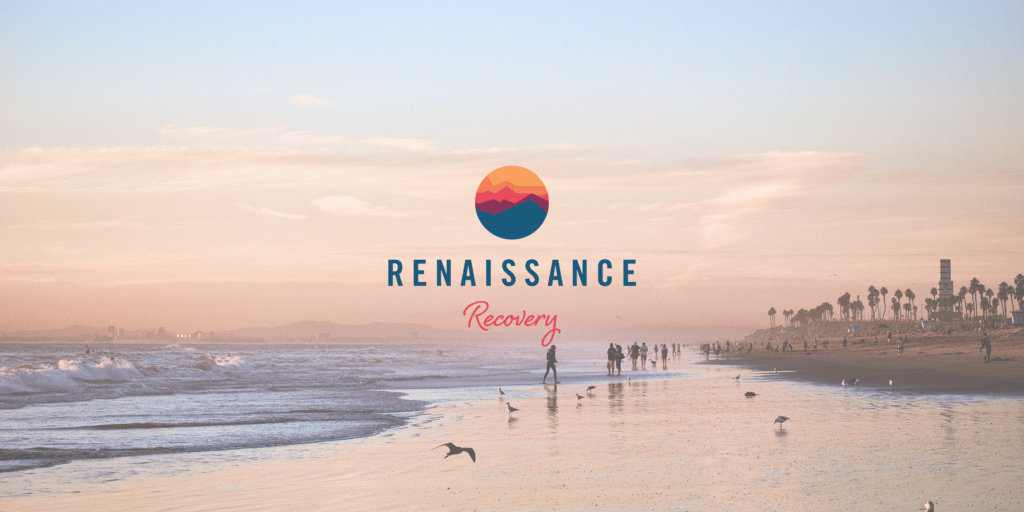It is widely acknowledged that being in a relationship with a drug addict is remarkably challenging.
Substance abuse and relationships don’t make for a smooth mix. The nature of any addiction means it’s only a matter of time before the negative consequences start rippling out beyond the person using substances. Lies, deceit, and broken promises soon erode the trust upon which all good relationships are based.
Indeed, many would argue that the most acute effects of addiction impact the loved ones of those continuing to abuse substances even as life is unraveling around them.
But, with the help of a professional treatment center, like Renaissance Recovery’s California rehab, you can help your significant other conquer the problem. Before we take a look at how an Orange County rehab may be able to help you, let’s get a better understanding of the problem at hand.
Addiction and Relationships
When you’re learning how to deal with a partner addicted to drink or drugs, some approaches are proven effective, while others are not only ineffective but also potentially dangerous.
The most crucial thing you can do is to set and then maintain reasonable boundaries. Boundaries are those behaviors you find either acceptable or unacceptable. Learn how to say “No” without feeling guilty, and uphold these boundaries.
Beyond this, the overarching goal should be to get your partner into an outpatient treatment center so they can detox and withdraw from substances before addressing the root cause of their addiction. Any co-occurring mental health disorders need diagnosing and treatment simultaneously, too. You may not get your partner to engage with treatment right now, but persist until they get the help they need. Only 10% of those requiring treatment for addiction get this help, so make sure your partner is among them.
By practicing healthier ways of helping your addicted loved one without enabling them – more on that below – and by keeping a balance in your own life, you’ll ultimately do them more good than pandering to their whims.
If you are prepared to work with your loved one, staying in the relationship will take some committed hard work to keep it flourishing rather than stagnating. Luckily, there are some simple steps you can take to streamline this process, and we’ll double down on those right now.

Staying in a Relationship with Someone with Drug Addiction
With just four simple strategies rolled out in combination, you might find it easier to remain in the relationship if your partner is abusing substances.
- Stop trying to fix your loved one and accept that you have no control over the actions of anyone with an addiction
- Learn how to help your loved one without enabling their addiction
- Start rebuilding your own life and practice proper self-care
- Reach out for help rather than waiting for your loved one to hit rock bottom
1) Stop trying to fix your loved one and accept that you have no control over the actions of anyone with an addiction
You only have control over yourself. When someone is abusing substances to the point of dependence and addiction, their brain undergoes changes in structure and function. Once you grasp the concept that the actions of your addicted loved one may be almost impulsive rather than selfish or careless, you’ll be better positioned to meaningfully help your loved one.
Don’t confuse this with not helping your loved one get the right treatment, though. This should be your underlying goal, and this route offers the best chance of sustained recovery.
2) Learn how to help your loved one without enabling their addiction
Many people try to help loved ones with addiction by giving them a place to stay, lending them money, or by making excuses for their drug-induced behaviors.
Not only will this not help in the long term, but you’ll also simply be helping your loved one to perpetuate an addiction. The more severe an addiction, the more complicated it is to treat.
Avoiding enabling behaviors, then, you should set reasonable boundaries and look forward to your relationship becoming stronger and healthier. You can achieve this without in any way enabling your loved one’s addiction.
3) Start rebuilding your own life and practice proper self-care
Living with an alcoholic or drug addict can be remarkably wearing. You may find you’re feeling your own life is empty in some areas as a result of spending so much time helping your partner.
Look after yourself. Focus on proper sleep hygiene and eat healthy, whole foods. Exercise daily and devote plenty of time to relaxation. If you struggle to unwind, consider yoga or meditation.
Evaluate your own use of substances and make any adjustments as appropriate.
4) Reach out for help rather than waiting for your loved one to hit rock bottom
When you’re dealing with an addicted loved one, the sooner they get some help and support the better.
Don’t fall for the myth that you need to wait for your partner to hit rock bottom before taking action.
Ending a Relationship with a Drug Addict
Sometimes, the issues can become too much and you may need to end the relationship. This is okay. You don’t have to feel guilty about this decision. That said, there are still ways that you can help your significant other during this time.
When you do make the decision to tell them that you are ending the relationship, take a moment to let them know that you still want to see them get sober. You can even offer your assistance to find a treatment program that can help them on their journey.

Being in a Relationship with a Recovering Drug Addict
Being in a relationship with a drug addict is obviously difficult, but if you can help them overcome this problem, it will make the situation easier to handle.
The first crucial element of repairing your relationship is for your loved one to stop using substances. Maintaining a healthy relationship with one partner actively abusing substances is tough.
With addiction counseling – both individual and group – along with psychotherapy sessions, your loved one should start better understanding the impact of their substance abuse. The right treatment should also help your loved one to more confidently avoid cravings for drink or drugs.
You may find couples counseling beneficial if your partner is abusing substances. They will get some insight into the way their actions are affecting you and the relationship, and you’ll get a qualified counselor to help you both to communicate more openly and effectively.
Encourage your loved one to attend 12-step support groups like AA and NA. Here, they can benefit from the powerful peer support of others grappling with similar issues.
You may find the sister groups (Al-Anon and Nar-Anon) useful. These groups offer support for the loved ones of those with addictions.

Getting Help for Your Loved One with Addiction
If your loved one has alcohol use disorder or substance use disorder but has not yet engaged with treatment, we can help you with that here at Renaissance Recovery Center.
The best news? We specialize in the outpatient treatment of addiction, so your partner can spend their days in therapy and then return home to you and the family each evening. Research shows that intensive outpatient programs (IOPs) can be just as effective as inpatient rehab for treating most substance use disorders.
With a combination of evidence-based treatments like MAT (medication-assisted treatment) and talk therapies like CBT (cognitive behavioral therapy), we’ll help your loved one build a solid foundation for sustained recovery.
If your partner has a co-occurring mental health condition like depression, anxiety disorder, or PTSD, our dual diagnosis treatment program will help them address both issues simultaneously. This integrated approach to treatment offers the most favorable outcomes.
If you are in a relationship with a drug addict and need to get your partner back on the right track while restoring normality to your own life, reach out to our drug addiction hotline at 844.912.2284.









